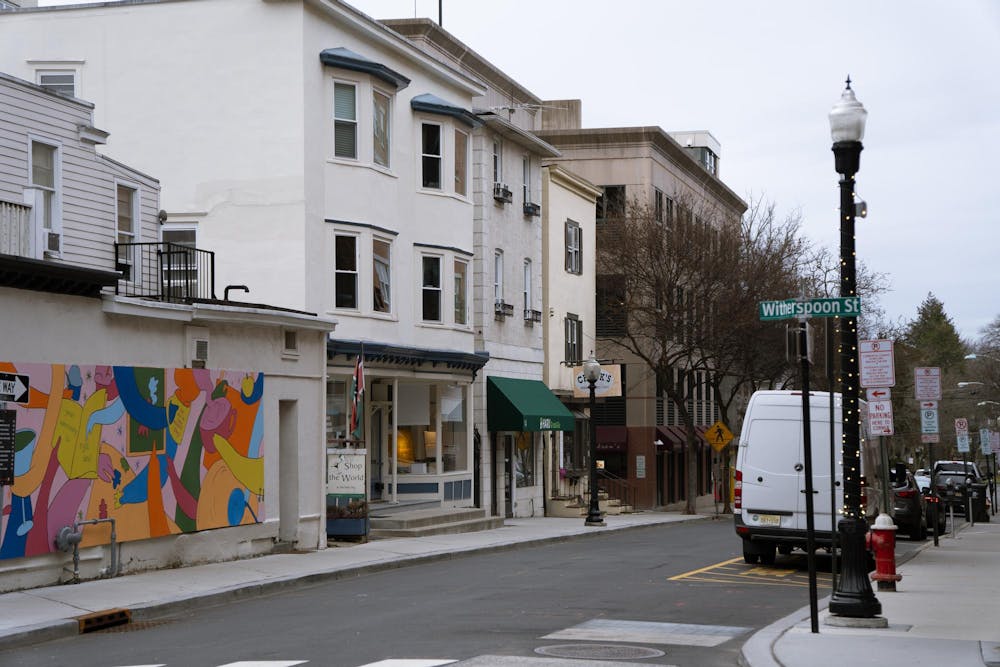Following a contentious move on Jan. 8 by the Princeton Town Council to consolidate three of its volunteer commissions with little notice, some members of the dissolved committees are questioning the Council’s intentions. In their view, the decision is a reflection of deeper issues of trust within the Council.
The commissions joined together were the Civil Rights Commission, the Human Services Commission, and the Affordable Housing Board. These committees were all staffed by volunteers from the community, as opposed to elected council members.
“The lack of transparency, it was for me the most shocking part,” Veronica Olivares-Weber, who served as chair of the now-defunct Human Services Commission, said in an interview with the Daily Princetonian.
In an interview with the ‘Prince’ earlier this month, Councilmember Leighton Newlin defended the decision. At the time, he affirmed that the consolidation was made with the potential impact of the newly consolidated committees in mind.
“It’s not about hurting our feelings, it’s about doing things right,” Olivares-Weber told the ‘Prince.’
Linda Oppenheim, a volunteer with the racial justice organization Not in Our Town Princeton (NIOT), said the council’s consolidation reflected a larger disconnect with the community, referencing the Princeton Community Needs Assessment as an example.
In collaboration with Princeton University, the Human Services Commission created and administered the Princeton Community Needs Assessment as two surveys between 2020–2022 to determine what gaps and struggles exist in Princeton, and presented it to the Council in December 2022. However, according to Oliveras-Weber, the commission was told that the assessment was “just a presentation.”
“This was a huge disappointment, as people were working on this for years,” she said.
Councilmember Eve Niedergang told the ‘Prince’ that commissions often propose valuable initiatives, but many cannot move forward, because the “Council simply doesn’t have the bandwidth.”
Oppenheim, however, linked the dismissal of the survey to a “disconnect” that was “astounding.” She further claimed that council members “justified the decision to consolidate with a need for professionalization of the work those committees were doing” at the Jan. 22 public hearing.
“The previous commissions had professionals, were committed to gathering data through the survey, but were ignored,” Oppenheim added.
Niedergang told the ‘Prince’ she doesn’t recall using the word “professionalization,” but stated that the Council was referring to expanding professional capacity with regards to the number of staff. She added that the Council’s decision to consolidate the committees did not imply the other members were not professionals.

Maria Juega, another community member who served on the now-defunct Affordable Housing Commission and a founder of the Latin American Legal Defense and Education Fund, told the ‘Prince’ that “all three boards and commissions have been struggling for years in trying to take initiative and make recommendations to Council. Almost everything we were proposing was set aside, ignored. It was like they didn’t want to listen to us. We were just a rubber stamp.”
Overall, Olivares-Weber, Oppenheim, and Juega viewed the larger problem as a refusal from the Council to listen to ideas outside the body. “If an idea doesn’t come from a governing body, it’s not a good idea. Even if we have research and data,” Olivares-Weber said.
According to Olivares-Weber, she and another member of the Human Services Commission met with Princeton Mayor Mark Freda and Councilmember Leticia Fraga in 2023 to express frustration with a lack of transparency and that they were feeling ignored.
Oliveras-Weber recounted that she felt “so disrespected” after the meeting.
Fraga told the ‘Prince,’ “From my part as liaison, I don’t believe there was any miscommunication. There were some members that were not accepting the limitations of the scope of what they could do.”
Mayor Mark Freda did not respond to requests for comment by the time of publication.
Fraga shared that every year, the Council decides on priorities and liaisons share these priorities with the commissions. With regards to the Community Needs Assessment Survey, Fraga said “I don’t know where the communication broke, but it was just a presentation, because there was never any directive from Council to tell the Human Services Commission to act on it.”
After analyzing the survey’s results, the Human Services Commission wanted to spearhead a project that would centralize mental health services into an accessible calendar to enhance service provider collaboration and community accessibility. Olivares-Weber likened it to the Human Services’s food distribution calendar.
“We appreciated the work that went into [the survey] … it was informative and identified the need for more access to mental health services, and we all understand this,” Fraga said.
Fraga said the chair and vice chair were told that the Council was already in the process of entering into agreement with Catholic Services to meet the mental health needs of those without insurance, and that the provision of mental health services was not under the jurisdiction of Human Services.
“Whether you call it miscommunication or willfully not accepting that it wasn’t their role, they were taking it on as their initiative,” Fraga said.
While Olivares-Weber will not be applying to the new consolidated commission because of her negative experiences, she “hopes not to see only people [the Councilmembers] are friends with and who they like.”
She added, “I think it’s important for Princeton students to be informed, particularly on issues related to underserved communities.”
Oppenheim echoed this, saying, “I would like to see greater recognition from students of the University’s role in town. The University really affects what happens in this location.”
Juega also encouraged Princeton students to rise up to issues of equity using resources provided to them.
“Things get done in Princeton behind closed doors … let’s open up the discussion, let’s be more democratic,” Juega said.
Abby Leibowitz is a senior News writer for the ‘Prince.’
Please send corrections to corrections[at]dailyprincetonian.com.








